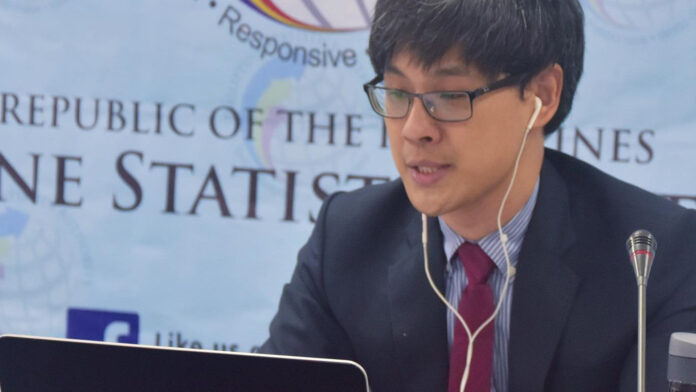The head of the National Economic and Development Authority (NEDA) said the Philippine Identification System (PhilSys) or the national ID system will push for financial inclusion and secure social protection.
Socioeconomic Planning Secretary Karl Kendrick Chua said in his report to President Rodrigo Duterte on Monday night that Land Bank of the Philippines will co-locate in all PhilSys registration sites with the goal of opening bank accounts for all low-income Filipinos by the end of 2021.
It will help Filipinos without bank accounts to create one, Chua said.
The provision of social protection services, such as the distribution of financial assistance during calamities or any crisis, will also be hastened through the Philsys, he said.
“Hindi na po ‘yng pipila pa sila sa distribution center. So malaking tulong po ito (They will no longer queue in the distribution center. So it would be a huge help) for the future,” Chua noted.
The Philsys project will likewise help in the national vaccination program.
“‘Pag simula na po ng category or priority C, ito po ‘yung general population na siguro magsisimula by the end of the year, ay puwede pong tulungan ng ating National ID ‘yung pag-queue and pag-register ng general population (Once the inoculation for priority groups under category C, which is the general population, that may start by the end of the year, the National ID can help in registering the general public),” he said.
The government is rolling out the PhilSys registration process in three phases due to the coronavirus disease pandemic that requires safety and health protocols.
The first phase of the PhilSys involves the collection of the registrant’s information like full name, gender, date, and place of birth, blood type, and address. It will soon be accomplished online.
Chua said the government conducted house-to-house visits to collect demographic data of targeted nine million individuals, composed of at least five million low-income household heads and the rest, adult household members.
The second phase involves capturing biometric information such as fingerprints and iris scans.
The third step of the registration is the issuance of a physical ID card stored with a 12-digit PhilSys number or personal serial number and a 16-digit PhilSys card number.
The first batch of 956 Philippine Identification (PhilID) cards will be delivered this week.
Chua reported that some 33.4 million Filipino have already registered for the Step 1 process.
Seventy-one provinces are currently facilitating Step 1 registration for PhilSys towards the target to register 50 to 70 million Filipinos by the end of the year.
Room for improvements
Chua, meanwhile, assured system improvements on online registration following a technical glitch during its pilot run on April 30.
The NEDA chief said the registration portal is designed to accommodate 16,000 simultaneous users per minute with an ability to scale up to 35,000 per minute.
But due to high demand, Chua said registration tripled on the first day.
“I have conveyed my sincerest apologies to the Filipino people for the inconvenience,” Chua said.
The government is currently in talks with international and local experts to improve the PhilSys online portal, he said.
Signed into law by President Rodrigo Duterte in August 2018, Republic Act 11055, or the Philippine Identification System Act, aims to establish a single national ID for all Filipinos and resident aliens.
The national ID shall be a valid proof of identity that shall be a means of simplifying public and private transactions, enrollment in schools, and the opening of bank accounts.
It will also boost efficiency, especially in dealing with government services where people will only need to present one ID during transactions.
Photo Source: Facebook/Karl Kendrick Chua


